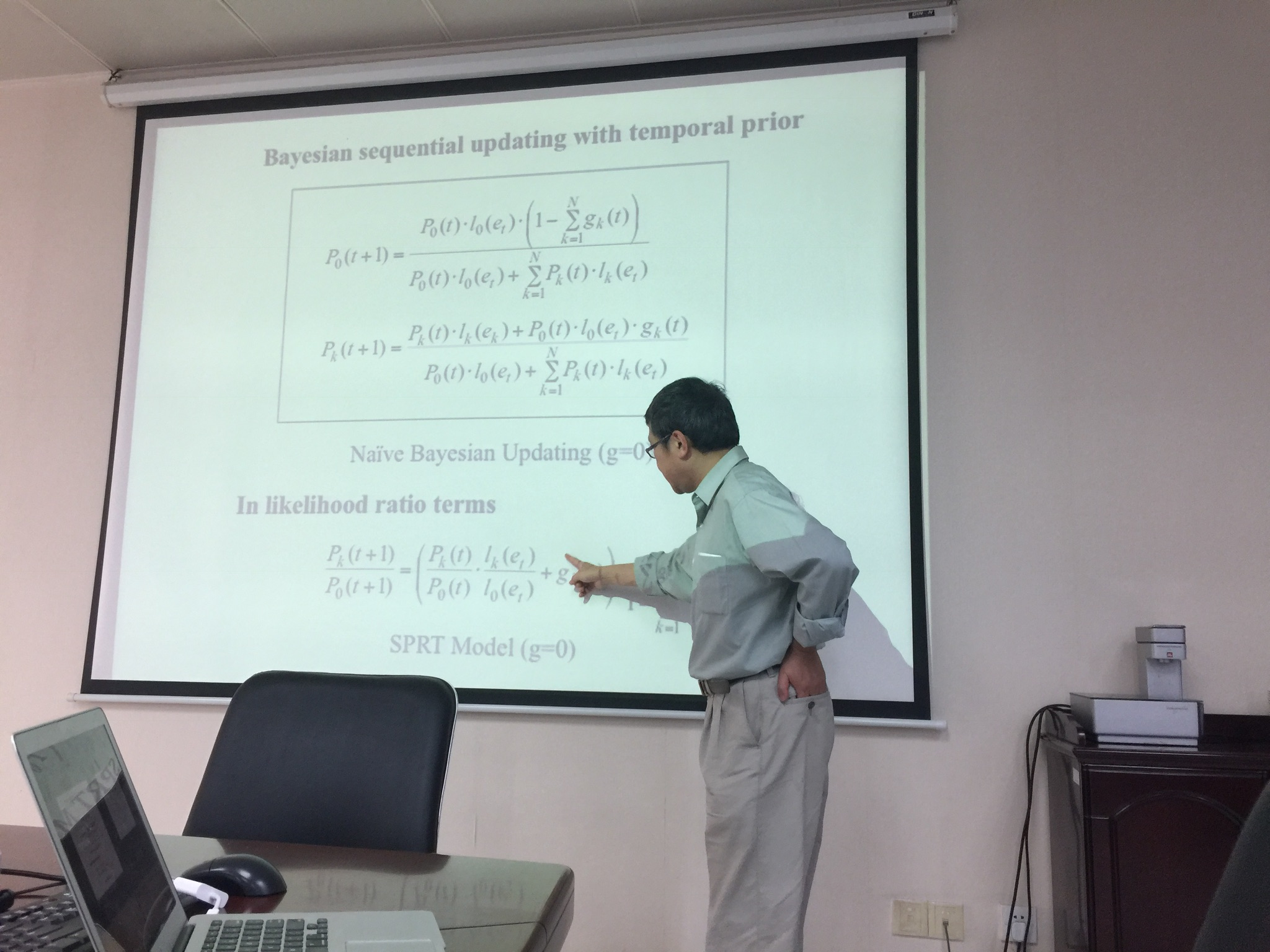

学术讲座:Bayesian Change-Detection with Identification: Sequential Algorithm and Neural Evidence
主讲嘉宾: 张俊教授 美国密歇根大学
时间:2016年12月22号(周四 ) 上午10:00
地点:永利集团南区基础实验楼北座信息工程学院N710会议室
报告摘要:
How do animal and people combine prior knowledge with evidence gathered on a moment-to-moment evidence for decision-making has been well-studied in psychology using choice-reaction time paradigm. Here, we consider the problem of change detection along with identification in multi-hypotheses setting, assuming a known prior. A Bayesian sequential updating algorithm is proposed, along with the threshold-crossing stopping rule common in sequential analysis. The value of an absorbing boundary is shown to exactly equal the hit rate of a decision-maker conditioned on that response. Computer simulation reveals that the algorithm shares many similarities with human performance in stimulus detection/identification experiments. Given recent evidence from neuroscience in support of sequential analysis algorithm, we report a re-analysis of the neuronal data recorded by Roitman and Shadlen (2002) in the monkey’s lateral intraparietal cortex (LIP). Results show that neuronal activity accumulates during each trial up until monkey’s behavioral response, that the accumulation (“buildup”) rate is monotonically related to the strength of the stimulus, and that buildup activities encode intended movement rather than sensory information.
嘉宾简介:
Jun Zhang is a Professor of Psychology and Professor of Mathematics with the University of Michigan, Ann Arbor. He received the B.Sc. degree in Theoretical Physics from Fudan University in 1985, and Ph.D. degree in Neurobiology from the University of California, Berkeley in 1992. He then joined the faculty of the University of Michigan, Department of Psychology, where he became a Full Professor in 2007. He has also held visiting positions at the University of Melbourne in Australia, CNRS Marseille in France, the University of Waterloo in Canada, RIKEN Brain Science Institute in Japan, and at Center for Mathematical Sciences and Applications at Harvard University. He has served as the President, Vice President, and Executive Board Member of the Society for Mathematical Psychology, and he is currently an Associate Editor for the Journal of Mathematical Psychology. He is a Fellow of the Association for Psychological Sciences (APS), and a Fellow of Psychonomic Society. He served as a Council Member and now at Member-at-Large on the Governing Board of the Federation of Associations in Brain and Behavioral Sciences (FABBS). Dr. Zhang’s scholarly research is in the area of mathematical psychology, computation neuroscience, machine learning, information geometry, etc. His research received U.S. federal grant supports from the National Science Foundation (NSF), Air Force Office for Scientific Research (AFOSR), Army Research Office (ARO), and Defense Advanced Research Projects Agency (DARPA).

